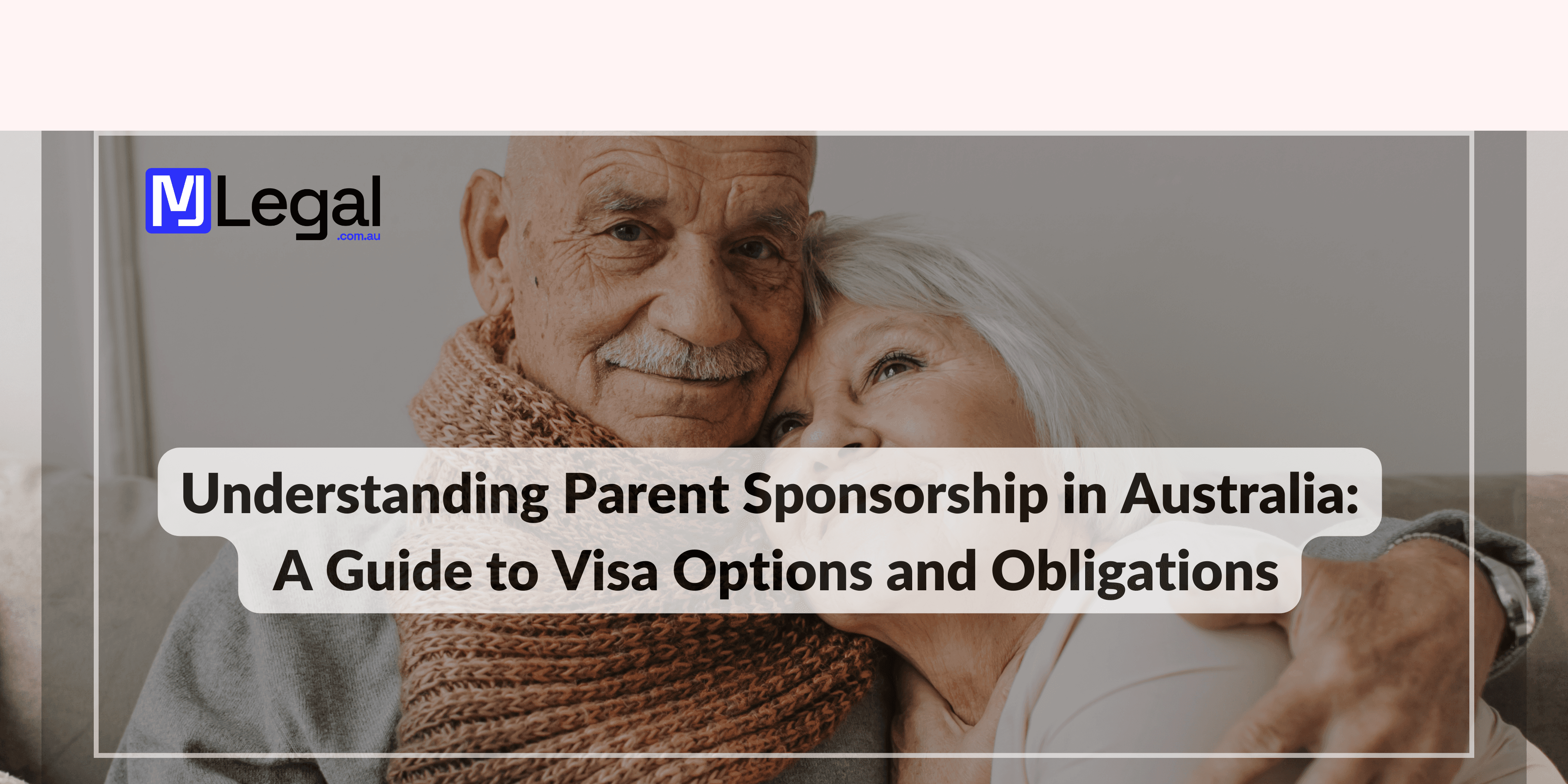Understanding Parent Sponsorship in Australia: A Guide to Visa Options and Obligations

Parent visa categories
Broadly the Australian Parent Visa Program entails the below visa categories.
- Parent Visa (subclass 103): A traditional option characterized by extended processing durations.
- Contributory Parent Visa (subclass 173 and 143): Offers expedited processing, however the application charges are quite high, with subclass 173 serving as a temporary route to the permanent subclass 143.
- Aged Parent Visa (subclass 804): Specifically designed for older parents.
- Contributory Aged Parent Visas (subclass 864 and 884): These provide quicker processing for older parents at a higher fee, with subclass 884 serving as a temporary route to the permanent subclass 864.
- Sponsored Family (Temporary) Subclass 870 visa – This is a temporary visa that allows your parents to stay in Australia for up to 3/5 years.
Parent visa sponsorship requirements
In order to sponsor your parents to Australia permanently, you must be:
- An Australian citizen / Permanent Resident
- Be a child of the Applicant.
- Demonstrate financial stability and legal responsibility.
- Be of good character
Parent visa sponsorship obligations
While every sponsor is obliged to provide support for the parent who is being sponsored, under specific visa subclasses there are certain obligations you must perform for your parents’ visa to be granted.
- Assurances of support
If you are making an application for Contributory Parent Visa (143 visa), Contributory Aged Parent Visa (864 visa), Contributory Parent (Temporary) Visa (173 visa), Contributory Aged Parent (Temporary) Visa (884 visa) you are required to provide assurances of support to the government.
The Assurance of Support is a legal commitment by a person (not necessarily the sponsor) to provide financial support to the visa applicant so that they do not have to rely on government assistance. The AoS also includes a commitment to repay any recoverable social security payments made by the Australian Government to the visa holder during the AoS period. The AoS period varies depending on the visa subclass but is generally 10 years for permanent contributory parent visas.
- Health Insurance
Generally, applicants who make applications for permanent visa are entitled to Medicare. However, this option is not available for parent visa applicants. Hence if you made an application for a visa which requires your parent to have health insurance, you need to ensure that you have an Overseas Visitor Health Cover arranged for them.
- Financial Support
All Sponsors should be financially willing and capable of providing support for their parents who are being sponsored. Specifically, the SC 870 Sponsored Family (Temporary) visa requires you to meet the minimum income threshold, if you are looking to sponsor your parent. You are also required to submit your notice of assessments to support the application.
- Accommodation
It is generally expected that the sponsor would be providing accommodation and support for the parent. In many parent visa application such as the 804 visa, 173 visa, 143 visa, 864 visa and 884 visa you will be required to provide details of your dwellings, nature of the establishment and confirm to the Department if the parent would be living with you upon their arrival.
q
The process of sponsoring parents to Australia involves a thorough understanding of visa specifications and associated responsibilities. Each visa subclass has distinct requirements and obligations, making it essential for potential sponsors to be well-informed. Consulting with an immigration lawyer can provide additional clarity and guidance in navigating this complex process.
In summary, the reunification of families in Australia through parent visas is a structured and detailed procedure, requiring commitment and understanding from the sponsors.
Need Legal Assistance?
Our experienced legal team is here to help you with your immigration and legal matters.






